Internet service provider
Latest
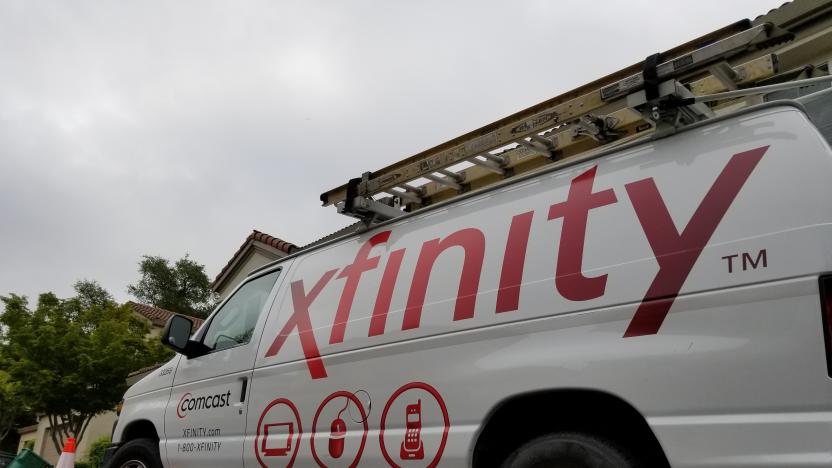
Comcast is the first ISP to join Mozilla's push for more secure browsing
Comcast is the first internet provider to join a Mozilla program that uses encrypted DNS for more secure web browsing.

Cox slows an entire neighborhood's internet after one person's 'excessive use'
Cable company Cox Communications is slowing internet speeds of a whole neighborhood if one resident is a heavy user, Ars Technica reported.

AT&T and Comcast improve internet access in response to COVID-19
With so many people in the US working and learning from home, as offices and schools close in response to the coronavirus pandemic, internet service providers (ISPs) are beginning to react. Comcast is increasing internet speeds for low-income users, and AT&T told Motherboard that it is suspending all broadband usage caps until further notice.

Canadian court issues first ever ISP order to block a piracy website
A Canadian Federal court has ordered internet service providers (ISPs) to block a pirate IPTV service called GoldTV in a case that could lead to further internet censorship in Canada, according to Reclaim the Net. Canada's major ISPs, including Rogers, Bell and Videotron, have been pushing for such a ruling for some years. Now, a nationwide blocking order has been granted, reportedly for the first time, and critics fear it could lead to further censorship of legitimate content.

Three UK rolls out 5G home internet access in London
Yet another carrier is offering 5G in the UK -- although it's not on your phone. Three has launched 5G home broadband in parts of London, giving people "fibre-like speeds" (the carrier hasn't given specific numbers) without requiring a technician visit. Pricing is simple, too -- there's just one £35 ($43) plan that offers "truly unlimited" access on a one-year contract.
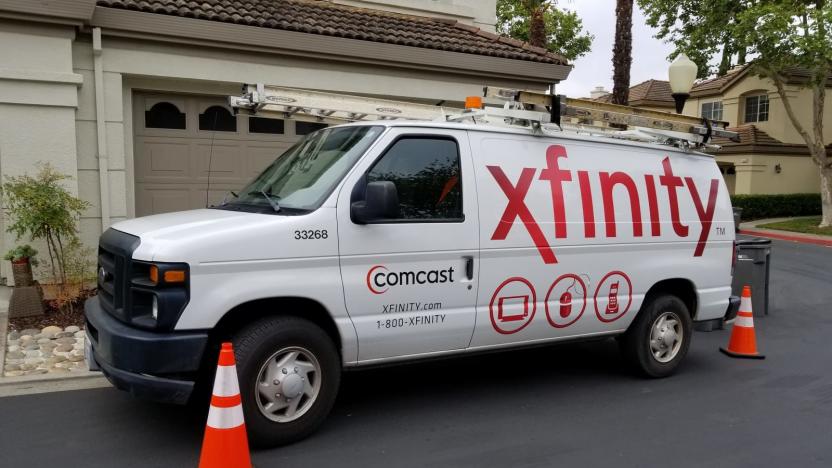
Comcast to pay $9.1 million for adding service plans without consent
Comcast is facing the consequences of attaching plans to customers' accounts without their permission. A Washington state judge has ordered the telecom to pay about $9.1 million in penalties, plus restitution, for adding its Service Protection Plan (which only offset the basic cost of a tech visiting your home) to bills over 445,000 times between 2011 and 2016. The company was fully aware of the practice and did nothing to change its ways until after it filed its initial lawsuit, according to the state Attorney General's office.

Maine passes bill requiring ISPs to ask permission before selling data
The current federal government might not be keen on privacy rules for internet providers, but Maine certainly is. The state's Senate has passed a bill that requires consent before ISPs can sell or offer access to their customers' private data, paralleling an earlier approval in the state House. It just needs Governor Mills' approval to become law.

Group accuses EU internet providers of violating net neutrality
The European Union has had net neutrality regulations in place since 2016, but some are concerned that internet service providers are playing fast and loose with those rules. A group of 45 advocate organizations, companies and individuals (including the Electronic Frontier Foundation) have sent a letter to EU officials accusing 186 ISPs of jeopardizing net neutrality though the use of deep packet inspection, which verifies the content of data traffic well beyond the basics. Existing rules allow carriers to shape traffic to optimize their network resources, but at least some ISPs are using this for "differentiated pricing," prioritization or throttling.
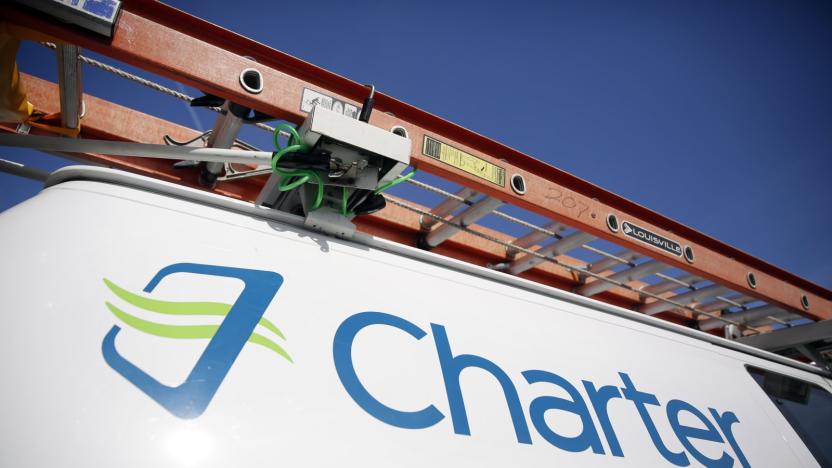
Charter will expand broadband network so it can stay in New York
Charter Communications has agreed to a settlement with the New York's Department of Public Service that will allow the internet service provider to continue operating within the state. As a part of the agreement, Charter will have to kick back $12 million to New York, which will be used to expand broadband services to underserved areas. Charter will also have to expand its high-speed broadband service to 145,000 residences and businesses in upstate New York by September 30, 2021.
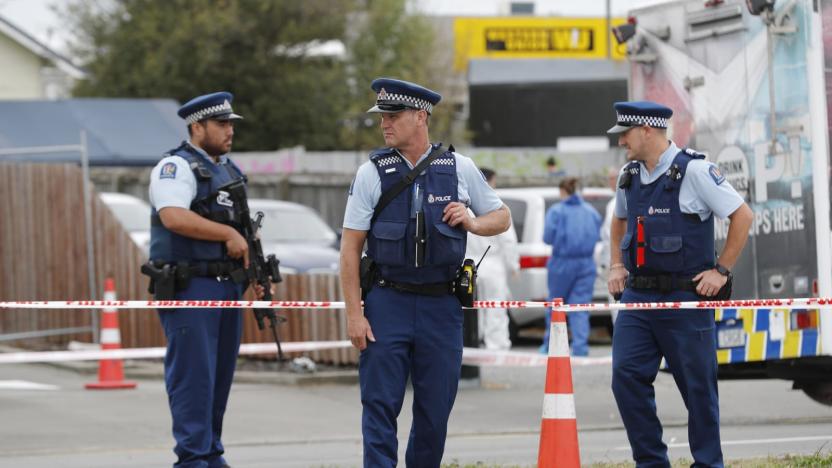
New Zealand ISPs block websites hosting Christchurch shooting video
Internet providers in New Zealand aren't relying solely on companies like Facebook and YouTube to get rid of the Christchurch mass shooter's video. Major ISPs in the country, including Vodafone, Spark and Vocus, are working together to block access at the DNS level to websites that don't quickly respond to video takedown requests. The move quickly cut off access to multiple sites, including 4chan, 8chan (where the shooter was a member), LiveLeak and file transfer site Mega. The block goes away the moment a site complies, and Vodafone told Bleeping Computer that a "number of sites" were unblocked that way.
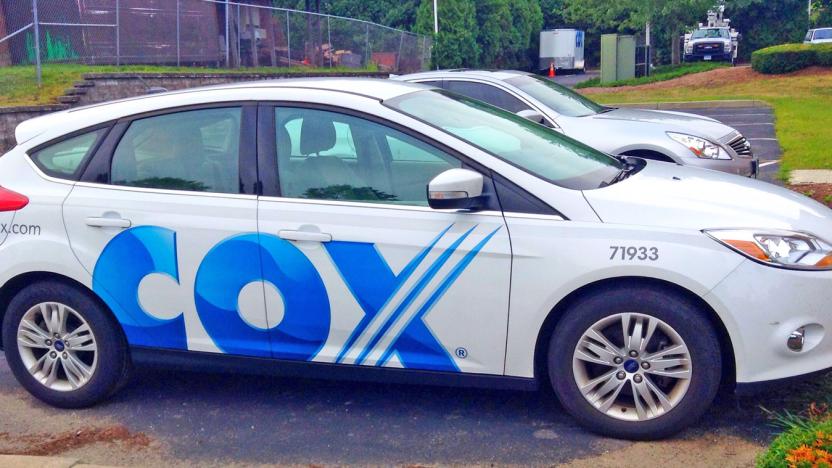
Cox expands its 1TB data caps to more territories
Cox is bringing its terabyte internet data caps to a bunch of new territories, having already introduced the plan to Cleveland, Ohio; Omaha, Nebraska; Sun Valley, Idaho; Florida, and Georgia. As a result, customers in Arizona, Las Vegas, Louisiana, and Oklahoma will now also have to pay $10 for every 50GB of data they consume over the cap -- Cox hasn't announced when it will introduce it to other markets.

Netflix speeds soar on Comcast following controversial deal
The past few months have been very active for Netflix, as it's faced new challenges with getting its video streams into homes. It responded to customer complaints and dropping average speeds by making a new connection deal with Comcast, while others like AT&T and Verizon also lined up with their hands out. For Comcast users at least, the recent deal between the cable provider and Netflix does seem to be bearing fruit. Thanks to the agreement -- which allows Netflix to connect its network directly with Comcast's infrastructure to bypass the bottlenecked third parties -- average speeds for streams on the network have surged up to 65 percent, going from 1.51Mbps in January to 2.5Mbps in March. Netflix also notes that it has also seen "early improvements" as a result of its deal with Telenor, an internet service provider in Norway, Sweden and Denmark. "We are dedicated to delivering a great streaming experience and invest in continually improving that experience," states Netflix on its blog. Even if similar deals are on the way with other ISPs, so long as net neutrality only covers traffic over the last mile, Reed Hasting likely has a few more furious Facebook messages in store.

EarthLink inks deal with Clearwire to use its 4G WiMAX network
EarthLink has been laying low since its Philly-wide WiFi project failed all those years ago, but now it's back in the limelight with Clearwire's 4G network under-arm. The companies have struck a deal for EarthLink to access Clearwire's WiMAX infrastructure, initially to offer wireless, in-home broadband. This is expected to launch in early 2013, with mobile and small business markets being future goals. An LTE network is also in the pipeline, don't forget, and when it goes live, EarthLink is likely to expand the agreement to cover it. The ISP is obviously putting its eggs in the 4G basket, because no one wants wires anymore, do they?

Google Fiber pre-registration program closes in the Kansas Cities
Gigabit internet speeds are nothing more than a dream for most of us, but for residents of the Kansas Cities, that reality is not far off. The six-week pre-registration program for Google's Fiber network closed yesterday, and at least 180 of the 202 "fiberhoods" earmarked for the upgrade have met their target. That number could rise when all the late entries have been counted, but we won't know until the complete list of areas drops later this week. If yours doesn't make the cut, it's not all bad news: Google's Jenna Wandres told us that although this initial rollout covers Kansas City, KS, and central Kansas City, MO, Fiber will be expanding north and south of the Missouri side in the future. When pre-registration opens for this second round, the 20-some-odd areas that failed to meet the initial criteria will get a second chance to, so start being extra nice to the neighbors if you want to get them on board. Unfortunately, we couldn't confirm even a ball park date for the expansion, but for the 180-plus hoods that qualify on this occasion, it's time to get excited. Any RTS gamer will know the value of getting your openers tight, and El Goog's currently compiling a "build order" so the areas that expressed the most interest in Fiber will have it first. According to Jenna, implementation is coming "very soon," so be ready to repress that hysterical scream when you see a Google truck casing your block.

FCC wants to know if it's too modest about broadband, gives chance to fight caps and slow speeds
A common complaint with the FCC's National Broadband Plan is its conservative definition of the broadband in question: many would argue that the 4Mbps baseline is an anachronism in an era of 4G, FiOS and Google Fiber. If you've ever wanted the FCC to up the ante, now's your chance. The regulator wants comments on its definitions of fixed and mobile broadband to gauge whether real-world trends like multi-user streaming video should lead to raised expectations for internet providers. Ever been burnt by a too-low bandwidth cap? It's open season on that area as well, with the FCC asking if it should define a minimum acceptable cap and possibly call for better limits than we see today. We just share GigaOM's wish that we could ask if every cap is even necessary, although the Department of Justice might be answering that for us. Americans have up until September 20th to make their voices heard, so get cracking if you'd like to set a higher bar.

IEEE pushes for Ethernet standard between 400Gbps and 1Tbps, hopes to head off big data crunch
Ethernet might seem passé to those of us toting Ultrabooks, but it's important enough to provoke a crisis for internet providers and many of those who depend on high-speed computing networks for a living: based on the rises of streaming video and social networking, the IEEE is worried that many of those large-scale networks will need 10Tbps of total bandwidth just to avoid a logjam in 2020. To that end, the standards body has formed a Higher-Speed Ethernet Consensus group that's mulling a new, breakneck-speed format reaching either 400Gbps or 1Tbps, depending on whose approach you'd favor. Fight the urge to pick the 1Tbps option on instinct, however. Both options would depend on bonding multiple connections together, and the faster of the two formats could lead to some expensive and very ungainly cables if it's not handled well. A meeting is scheduled for late September in Geneva to at least begin hashing out the details. Although we won't be wiring our homes with terabit Ethernet anytime soon, the standard should come quickly enough that the Googles and Netflixes of the world can satisfy our data addictions for a good while longer. [Image credit: Justin Marty, Flickr]

Google Fiber gets formal launch, adds Google Fiber TV (update: event video)
Google just kicked its Google Fiber efforts into overdrive. The company's Kansas City effort is getting a full launch and now includes Google Fiber TV -- a "real" TV service with recognizable channels and its own, fully searchable interface that mixes DVR results with Netflix and YouTube. As many as 500 shows can be stored in full 1080p HD, and several TVs within the home can tune in at the same time.. Not surprisingly, there's also a major mobile component taking advantage of that 1Gbps fiber link, as users will have the option of browsing, sharing and eventually watching live TV directly from tablet apps. The company is also promising an ever-evolving service that includes Google+ video hangouts. For hardware, Google has its own dedicated Network Box with a four-port gigabit Ethernet router and 802.11n WiFi, a TV Box with live viewing and a WiFi access point as well as a Storage Box DVR with 2TB of data and the ability to record eight shows at once. Your remote control? A free, bundled Nexus 7 tablet, naturally. The overall service will come with 1TB of Google Drive space, although it's expensive to get started: there's a $300 "construction fee" (currently being waived) to wire a home for the fiber optics. Three packages will be on offer, starting with a Gigabit + TV package that includes the essentials, all major channels and "hundreds" of fiber channels (plus on-demand content) for $120 a month. Skip traditional TV and it costs $70 a month -- and if you're a local resident willing to pony up the construction free, you can get 5Mbps internet access for free for "at least" seven years. Key institutions are getting the full gigabit access for free, as well. Only small slices of Kansas City in both Missouri and Kansas state should have access at first, but Google is conducting a six-week "rally" where the most people paying a $10 pre-registration fee dictate where Google Fiber goes next. Now if only other cities would go the same route. Update: The full event replay is available for your inspection after the break. %Gallery-161174%

Avanti launches prepaid, Ka-band satellite internet access, wants us Yelping from the Alps
Avanti has been beaming satellite broadband to Europe for awhile, but it's been tied to a subscription through carrier deals. That's a tough sell to customers who, by definition, don't want to be tied to anything -- which is why the company just launched prepaid satellite internet access for the continent. Although the Ka-band service's 4Mbps downstream and 1Mbps upstream speeds won't have anyone dropping their 330Mbps fiber anytime soon, the pay-as-you-go strategy will let travelers and rural dwellers get broadband in a pinch, no matter how spotty terrestrial access might get. Imagine Skype calls during Swiss ski vacations and you've got the gist of it. Carriers will resell the data in healthy doses of 1GB or larger, and Avanti is adamant that there won't be any nasty throttling surprises waiting in store. While exact prices will depend on partners, the provider isn't waiting for those details before it covers much of the Old World: its upcoming HYLAS 2 satellite (what you see above) will share the speed with Africa, the Caucasus region and the Middle East as of August 2nd, making it almost too easy for us to update Google+ in Georgia.

Comcast reportedly prepping 305Mbps internet service, aims to put FiOS in its place
Sure, at 300Mbps Verizon's FiOS Quantum is lightning fast -- but reports say that Comcast is prepping a new tier that's just a little faster. According to Broadband Reports sources, Comcast's Neil Smit told employees that the company would be introducing a 305Mbps downstream tier in Verizon FiOS territories "soon," but neglected to mention a strict timetable. Details regarding pricing and data caps are similarly scarce, of course. Comcast has yet to comment on the rumor, but we'll let you know if we hear anything official.

Myanmar plans to open doors to foreign telcos for affordable cellular, internet service
Hefty price tags haven't exactly made cellphones ubiquitous in cash-strapped Myanmar. According to AFP, an estimated 96 percent of the nation's 60 million inhabitants don't own a mobile handset, but that might soon be changing. A new reform plan announced by Myanmar's Post and Telecommunication Minister, Thein Tun, lays out a strategy that could finally give said folks a crack at affordable cellular and internet services. If successful, the initiative will start a bidding process for international telcos to set up shop in the country, allowing the companies to partner with the state-owned telephone provider and the ISP Yatanarpon Teleport. There's no word on when the partnerships may coalesce, but here's to hoping that $200 SIM card registration fees in Myanmar soon become a thing of the past. Full details at the source link below. [Image credit: Shutterstock]








